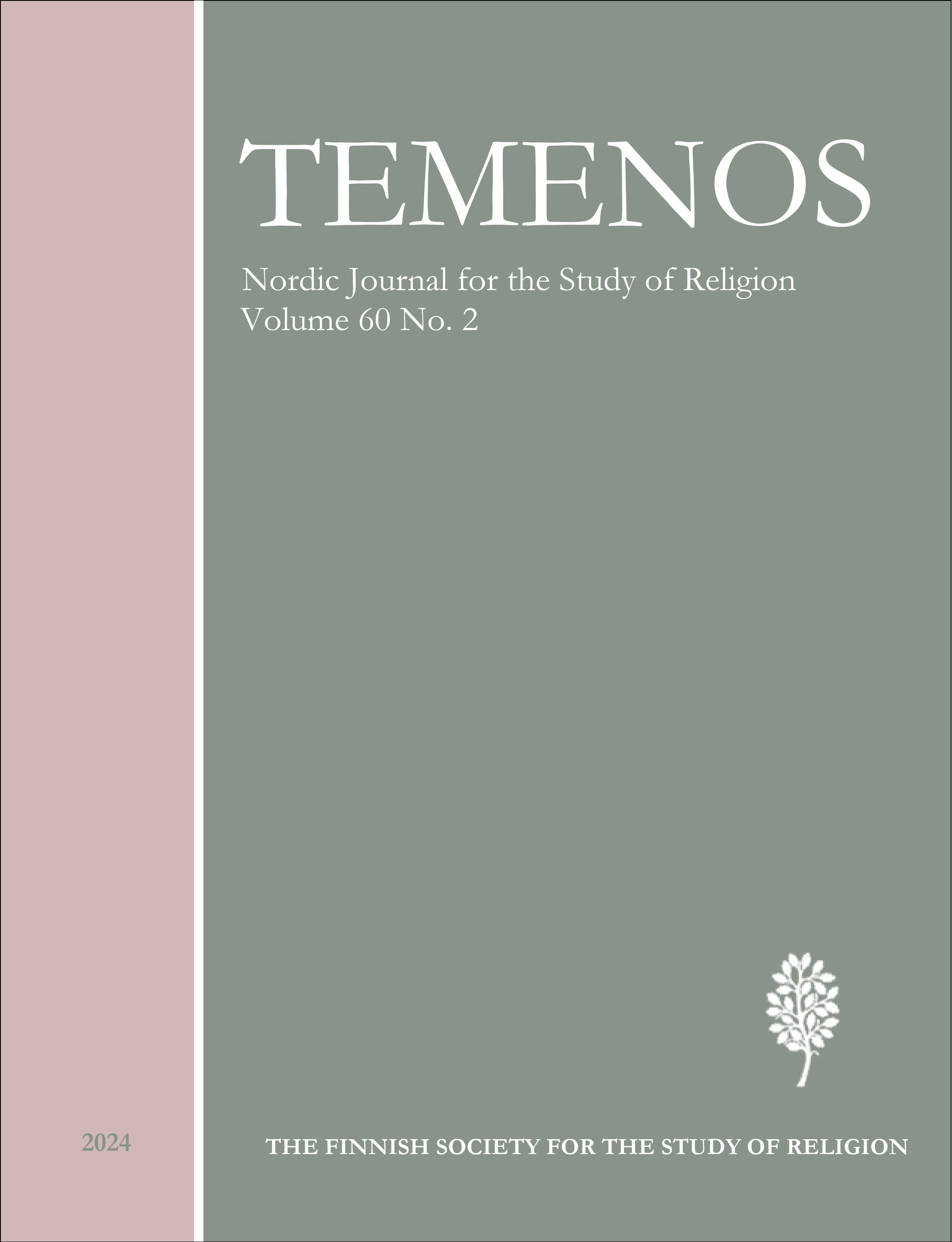Paranormalism, Voting Intention, and Other Conspiracy Mentality Predictors in Sweden
DOI:
https://doi.org/10.33356/temenos.144628Keywords:
conspiracy theories, conspiracy mentality, the paranormalAbstract
This article explores conspiracy mentality occurrence in Sweden as part of a 2020 survey of paranormal beliefs, practices, and experiences. Using the idea of a shared sociocultural milieu of alternative views and practices of knowledge as a departure point, the relationship between conspiracy mentality and paranormalism, viewed as instances of cultic, rejected, and stigmatized knowledge, is tested through multivariate regression. As part of the regression model, the effects of other social predictors (e.g. gender, income, and cultural values) are also assessed. A nonparametric analysis further explores the relationship between conspiracy mentality and voting intention. The results of multivariate regression show that the dependent variables only predict conspiracy mentality to a limited extent. Predictors that significantly contribute to predicting conspiracy mentality are gender (being male), higher levels of paranormalism, lower income, conservation as opposed to openness-to-change values, and self-transcendence as opposed to self-enhancement values. Meanwhile, the nonparametric test pointed to distinctly higher conspiracy mentality levels among sympathizers with the right-wing populist party the Sweden Democrats and those who favoured political parties not represented in parliament.

Downloads
Published
How to Cite
Issue
Section
License
Copyright (c) 2024 Cristoffer Tidelius

This work is licensed under a Creative Commons Attribution 4.0 International License.
Author's Guarantee
- The Author acknowledges that the Work will be publicly accessible on the Internet and that such access will be free of charge for the readers.
- The Author guarantees that the Work is her/his original work that has not been published before and cannot be construed as copying or plagiarism. Furthermore, the Author confirms that the Work contains no statement that is unlawful, defamatory or abusive or in any way infringes the rights of others.
- The Author confirms that she/he has secured all written permissions needed for the reproduction in the Publication of any material created by a third party.
User Rights
Under the CC BY 4.0 license, the Author/s and users are free to:
- Share — copy and redistribute the material in any medium or format,
- Adapt — remix, transform, and build upon the material for any purpose, even commercially,
- However, the Work must be attributed to the original Author and source of publication.
The license of the published metadata is Creative Commons CCO 1.0 Universal (CC0 1.0)
Author Rights
The Authors maintain the right to:
- copyright, and other proprietary rights relating to the Work,
- the right to use the substance of the Work in future own works,
- the right to self-archiving/parallel publishing (publisher's PDF allowed).
Rights of Publisher
- The Publisher reserves the right to make such editorial changes as may be necessary to make the Work suitable for publication in the publication, e.g. style of punctuation, spelling, headings and the like.
- The Publisher will publish the Work if the editorial process is successfully completed and reserves the right not to proceed with publication for whatever reason.
- The publication entitles the author to no royalties or other fees. This agreement will be governed by the laws of Finland.






